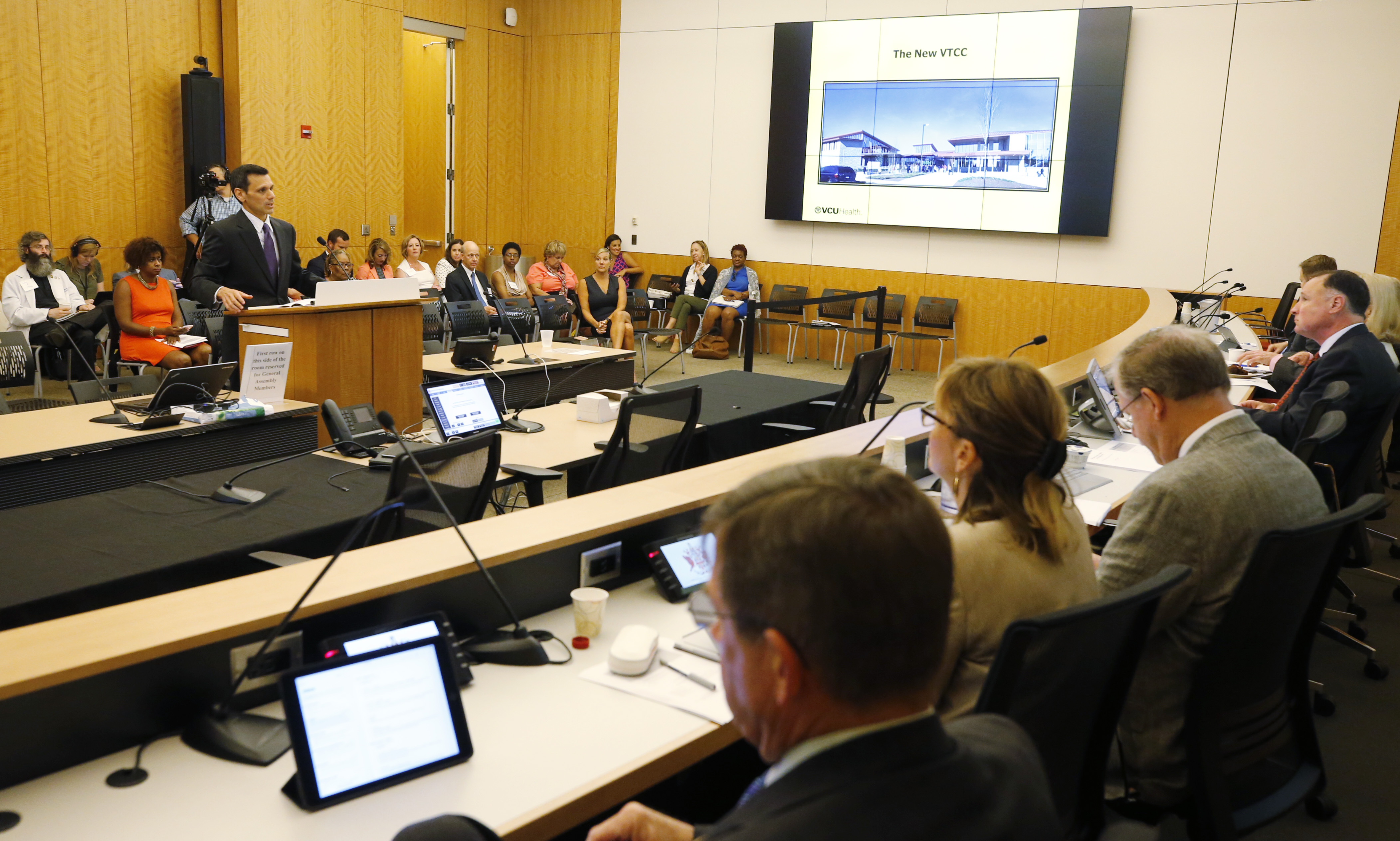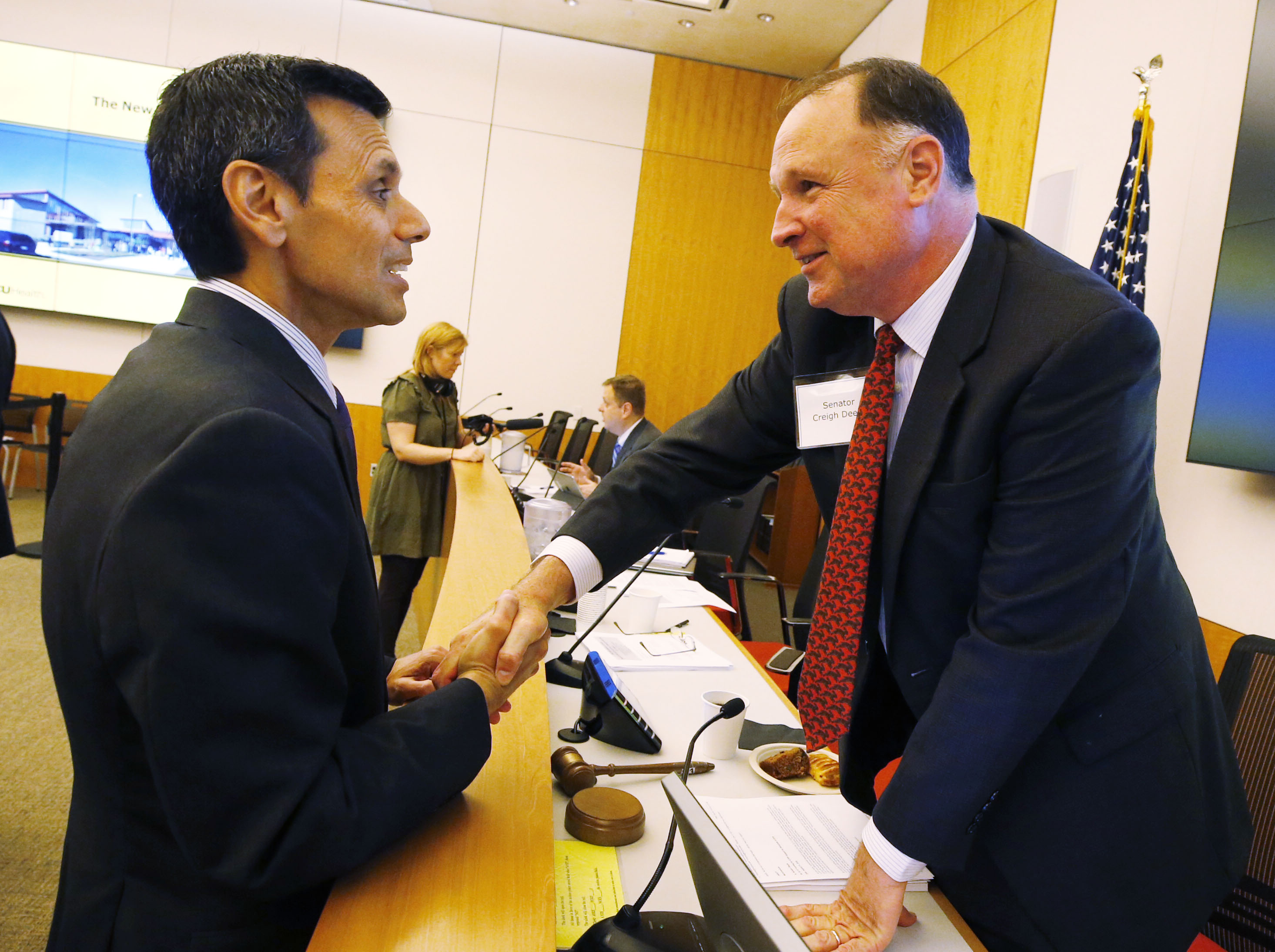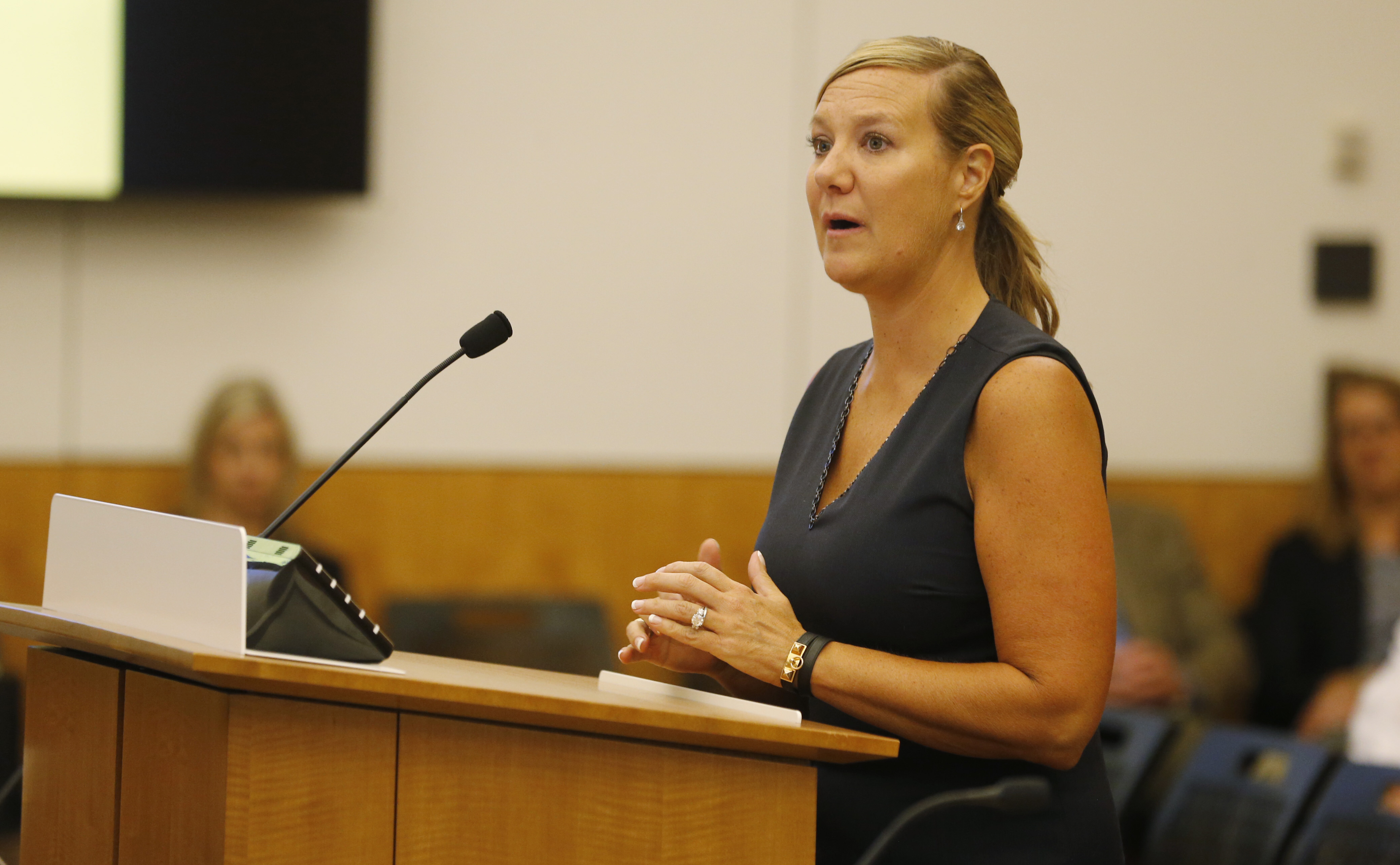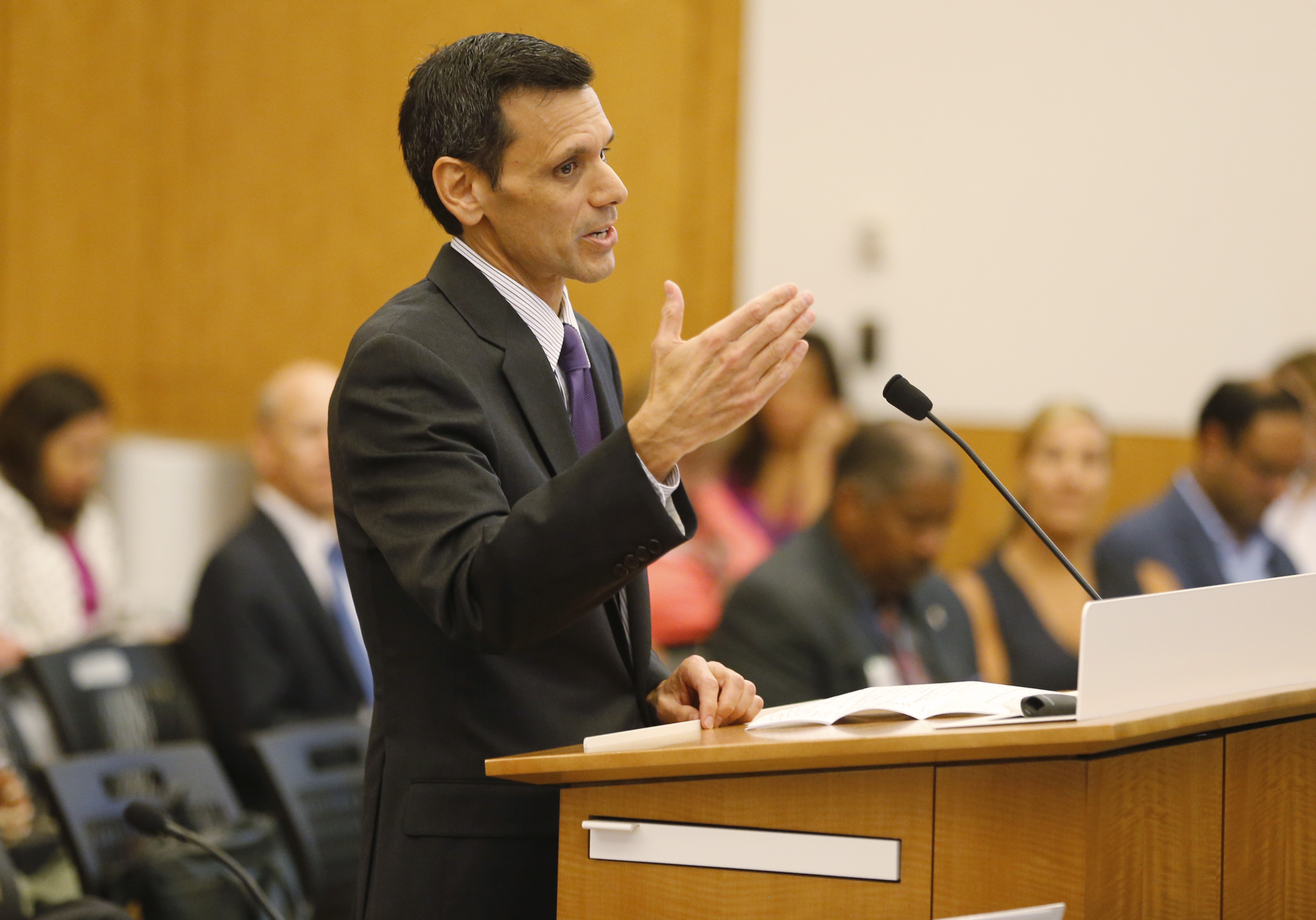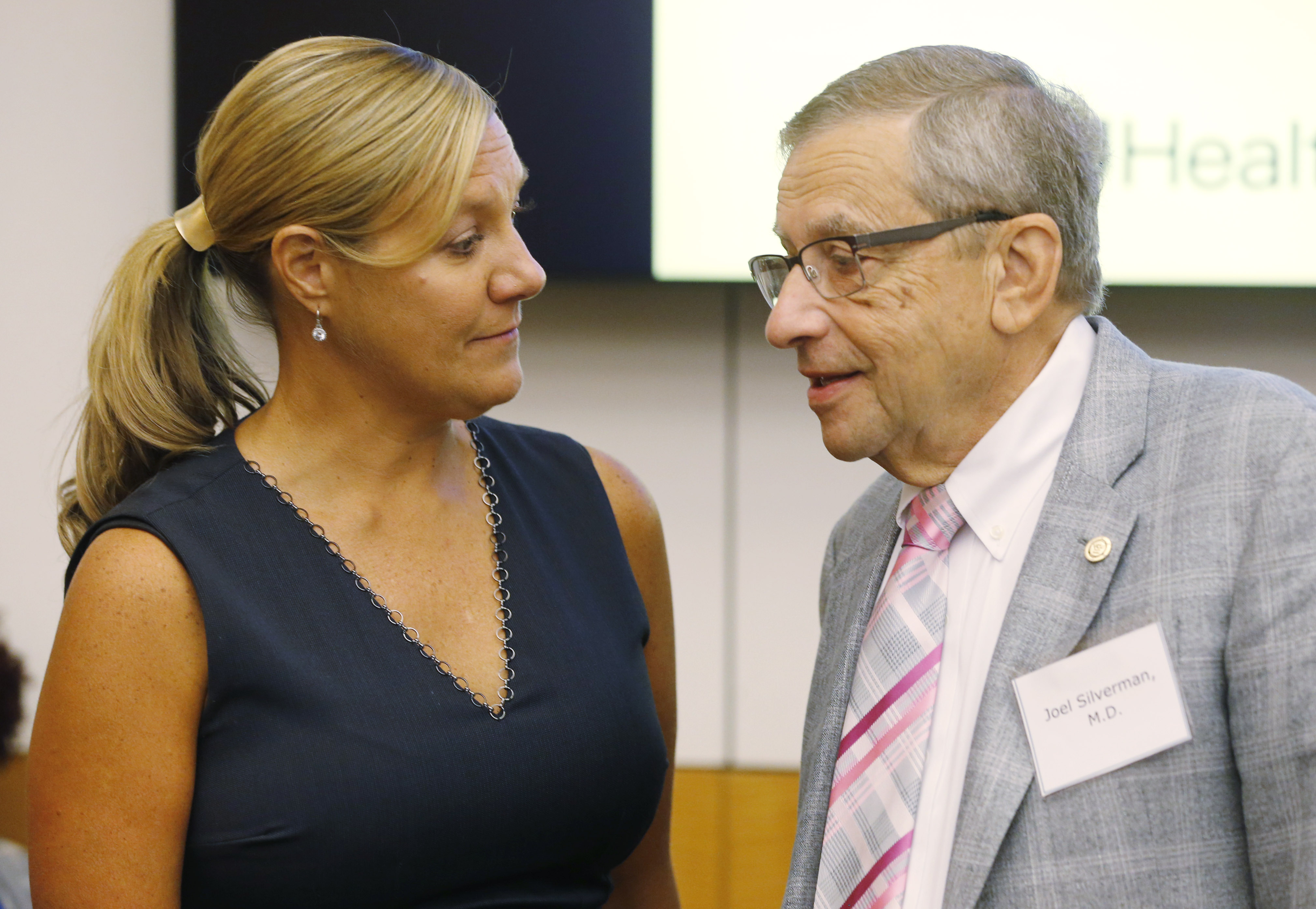News
Wilder School, VCU Department of Psychiatry Host Mental Health Mini-University
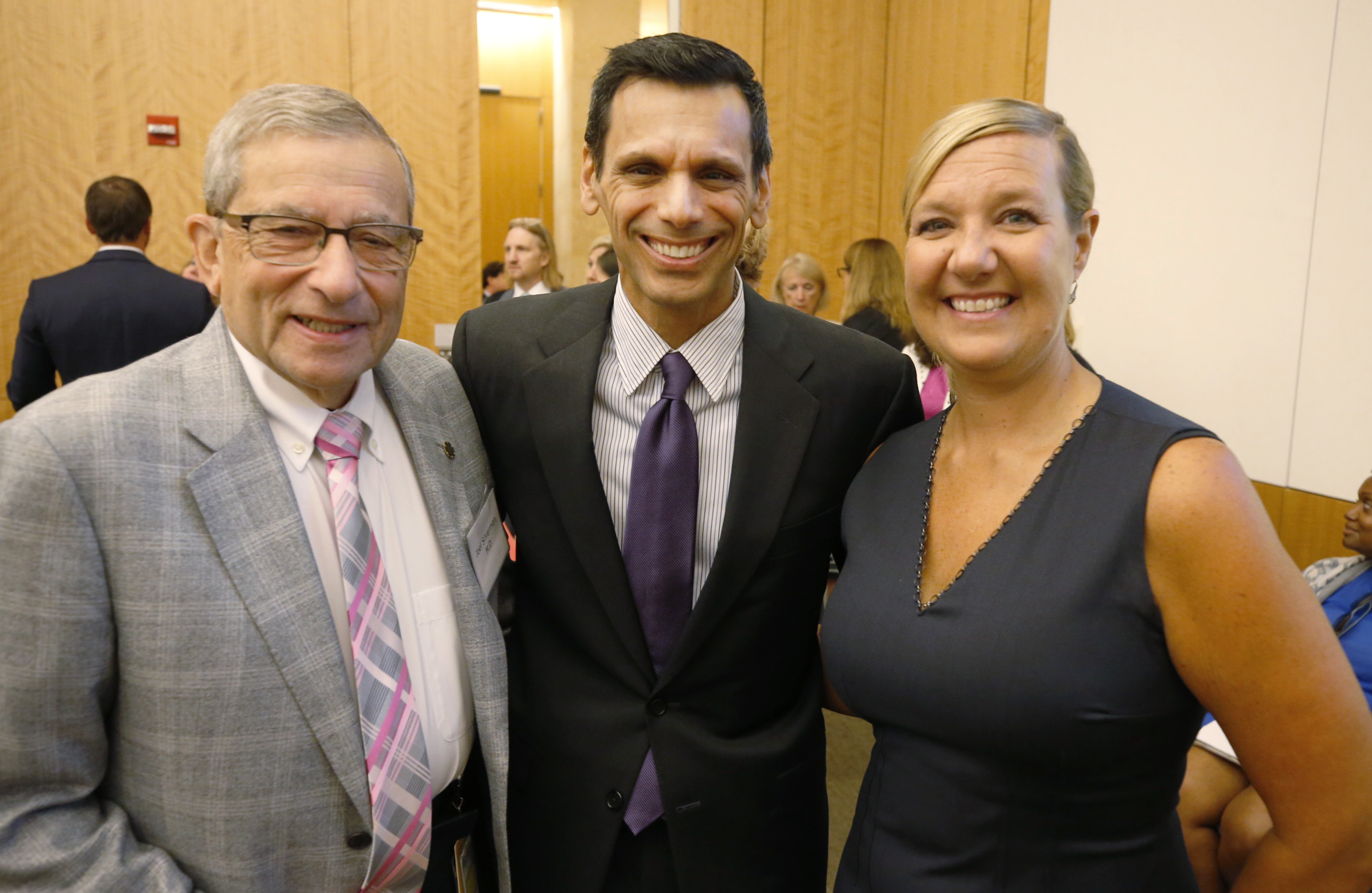
September 12, 2018
By Aleigh Faulk
Policymakers, researchers and the public recognize a need for policies that provide mental health services efficiently and effectively to those who need them, but the complexities of mental illness and the development of new knowledge from research mean legislators may struggle to stay up to date.
To help lawmakers stay current about the complex field of mental health, the Wilder School, the VCU Department of Psychiatry and Virginia’s Joint Subcommittee to Study Mental Health Services in the Commonwealth in the 21st Century joined together to host a “mental health mini-university” at the state Capitol on September 6. The public event brought experts in the field of mental health together with legislators, members of the executive branch, a number of other practitioners and other interested attendees.
After opening remarks from VCU President Michael Rao, Ph.D., and an introduction to the goals of the day by Robyn McDougle, Ph.D., director of the Wilder School’s Center for Public Policy, and Joel Silverman, M.D., chair of the Department of Psychiatry, the gathering focused on two topics.
Mental Health and Workforce Development
Peter Buckley, M.D., dean of the VCU School of Medicine, presented recent insights on mental health and workforce development. The number of psychiatrists available to assist those who are suffering from serious mental illness is insufficient, Buckley shared, with less people attending medical school with the intent of focusing on psychiatry.
Those who do choose to pursue psychiatry are faced with the limited slots available within the state for doctors’ residency once they finish school. Buckley said that focusing on improved, more attractive options for mental health professionals — such as improving facilities’ appearances and peer support services, as well as investing in research to find biomarkers for certain mental illnesses and drug development — will increase the supply of psychiatrists to assist those who are suffering from serious mental illness.
Health Effects of Alcohol, Marijuana and Opioids
Mishka Terplan, M.D., professor of obstetrics and gynecology and psychiatry and associate director of addiction medicine, delivered a presentation on the health effects of alcohol, marijuana and opioids. Terplan noted that while use of these substances can be traced back for several hundred years, the concept of addiction emerged in the early 18th century in relation to alcohol.
This concept of addiction was later applied to the substances cannabis and opioids, including adrenaline, heroin and most recently fentanyl. After addressing the history of addiction, Terplan explained the variety of physical deficiencies resulting from excessive use of these substances as well as the neurobiology of what he referred to as “The Hijacked Brain.”
This describes how the high levels of dopamine that are released after ingesting result in a decreased ability of the brain to produce dopamine naturally, which causes individuals who are initially using a drug for reward seeking the high eventually need to use it as a means of relief seeking from withdrawal symptoms.
Terplan stressed the need for a focus on recovery rather than more treatment, and urged attention toward finding solutions for those who are at risk for becoming addicted to a certain substance.
Looking for Solutions
Each session shed light on the current state of mental health in the commonwealth, as well as potential solutions to challenges. Following these presentations, legislators, practitioners, and others in attendance had the opportunity to ask questions in order to gain further insight and deepen their understanding of detailed topics.
“In the face of a recognized need for improved mental health services in every community, the format of the event represented a coming together of policymaker interest and academic research expertise to support the creation of new research informed policies,” McDougle said. “This, in turn, will allow legislators to craft important solutions that respond to the crucial dilemma that faces the wellbeing of their constituents.”
Event presentations: Presentation 1, Presentation 2, Presentation 3
